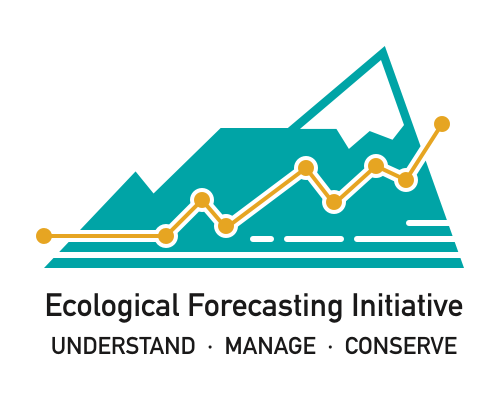Breadcrumb
Ecological Forecasting Initiative
Forecasts to understand, manage, and conserve ecosystems

The Ecological Forecasting Initiative (EFI) is a grassroots consortium aimed at building and supporting an interdisciplinary community of practice around daily to decadal ecological forecasts.
EFI’s interdisciplinary group is made up of ecologists, earth scientists, computer scientists, statisticians, mathematicians, and environmental scientists. The group is open for scientists at all stages of their career to join their mailing list, Slack platform, or join a working group. More recently, the Ecological Forecasting Initiative has teamed up with INRSEP to pair undergraduate student researchers to faculty advisors from other universities (University of Notre Dame, University of Minnesota) and to provide learning materials for students interested in learning more about ecological forecasting.
Much of the imperative to focus on ecological forecasting comes from the need to respond to the multitude of environmental problems facing society and the aspiration that environmental decisions be made with the best available science in hand. In fields such as fisheries, wildlife, algal blooms, wildfire, and human disease, we often need to know how ecosystems, and the services they provide, are going to change in the future, and how humans affect those trajectories. Because all decision making is ultimately based on what will happen in the future, either under the status quo or different decision alternatives, environmental decision making ultimately depends on forecasts. Ecological forecasters try to make those forecasts, and their uncertainties, explicit.
If you are a student interested in learning about doing research in ecological forecasting such as:
- The different ecological forecasting applications
- Connecting with a network of friendly researchers across disciplines and occupations
- Attending graduate school for research in ecological forecasting or a related field
Reach out to Dr. Rachel.Torres@Humboldt.edu to learn more.






